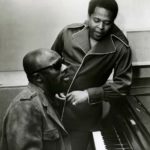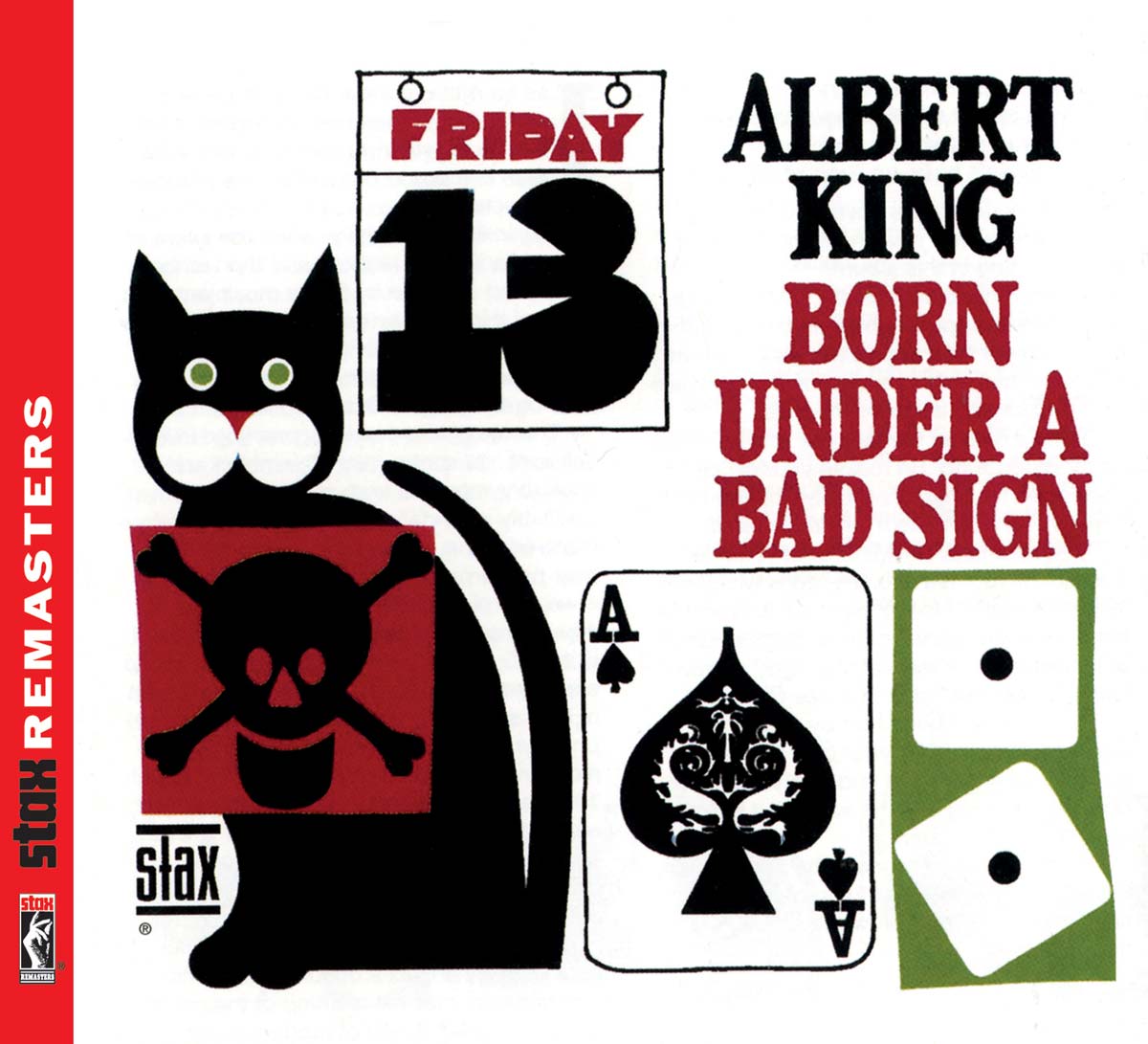Stax Songwriter Series

Booker T. Jones
Though rarely associated with one another as a pair, two of Stax Records’ earliest soul hitmakers collaborated as songwriters relatively frequently during their time together at the label. Booker T. Jones, the namesake, frontman, and multi-instrumentalist at the helm of Booker T. & The MG’s, penned several prominent singles and album tracks with male vocal soloist William Bell. Even as the two worked separately to bolster Stax’s hit-making prospects in the 1960s and ’70s, they churned out a string of minor hits together, enjoying the occasional seismic impression on national charts.
Born William Yarborough on July 16, 1939, in Memphis, the young man Bell, who would go on to great success at Stax, borrowed his penchant for melodies from his parents, who both sang. However, he purportedly borrowed his stage name from his grandmother, “Belle,” to whom he bore a striking resemblance. Known affectionately as “Little Belle,” he later shortened the nickname and dropped the “E” to devise his world-famous moniker.
William Bell, a performer in church and a regular at local talent showcases from an early age, didn’t always consider music a viable career choice. Instead, his family encouraged him to study to be a physician, to which he obliged. Following graduating from Booker T. Washington High School in Memphis, Bell made plans to begin his journey in medicine, hoping to become the first in his immediate family to earn a college degree.

William Bell
Fate would intervene, as Bell’s prowess on stage in the local talent circuit caught the attention of Phineas Newborn, Sr., whose orchestra held a prominent position in Memphis’ burgeoning nightclub scene. Within the big band, Newborn dispatched Bell as the lead singer of an off-shoot vocal group called The Del-Rios. In 1956, the group released their debut single on Meteor Records, with both sides co-written by Bell. The group found a creative ally in producer and engineer Chips Moman, who held a pioneering role in Satellite Records and (later the earliest recordings at Stax) alongside co-founders Jim Stewart and Estelle Axton. The Del-Rios offered backing vocal services in the studio before Moman eventually convinced them to record a single of their own for the newly minted Stax Records label. He’d also urge Bell to step out on his own as a solo artist, a proposal that required repeated nudging. While away with Newborn on a three-month stay performing in New York City, Bell, homesick, put his emotions down on paper, pining for a return home to the Southern city he felt he’d taken for granted in favor of the allure of life on the road. With that composition, he found his first solo hit, “You Don’t Miss Your Water,” and its B-side, “Formula of Love.” Stax released the single in 1961, just before The Del-Rios’ 1962 release of “Just Across the Street” backed with “There Is a Love.” Already regionally famous through his leadership over The Del-Rios, Bell quickly ascended as a triple threat, able to work as a solo entity, within the group, and as a songwriter. His momentum soon met an unexpected end when Bell’s name came up in the draft, and he enlisted into the armed services.
In 1963, Bell spent much of the year stationed in Hawaii, traveling home to record whenever he had a break from military duties. Upon his permanent return to Memphis following the fulfillment of his service, he sought to reinvigorate his career as a rising soul star. Establishing himself as an experienced balladeer, Bell forged a partnership with Booker T. Jones, which resulted in the release of “Everyday Will Be Like a Holiday,” in 1967.
Jones, born November 12, 1944, also attended Booker T. Washington High School, just blocks from Stax Records. An accomplished instrumentalist from childhood, Jones played several instruments, including the organ in church and various horns in the varsity band. While it was Phineas Newborn, Sr., who left a lasting musical impression on Bell, Booker T. Jones fondly recalls stealing a listen to Phineas Newborn, Jr., as he rehearsed as Jones walked past the Newborn family home along his paper route.
Like Bell, Jones cut his teeth in nightclubs, though he started as a minor. Jones sat in a high school algebra class the very moment his journey to becoming a vital thread in the Stax Records tapestry began. The elder David Porter, who recently graduated from Booker T. Washington, walked into the class and asked that Jones, a junior, be excused to play baritone sax on a recording session. That day, Jones aided Rufus and Carla Thomas in their recording of “’Cause I Love You,” released on Satellite Records in 1960.
With a revolving door of eager musicians—Black and white—coming into the fold of Satellite Records, as the label reshaped as Stax Records, a de facto house band began to gel. In one session, an outtake gathered from a jam session including Booker T. Jones on organ, Steve Cropper on guitar, Lewis Steinberg on bass, and Al Jackson, Jr., on drums, became a charting hit. Following that song, 1962’s “Green Onions,” Jones stepped up to lead the group, which bore the name Booker T. & The MG’s.
Similarly, to Bell, Jones departed from the label shortly after his first taste of success. In his case, the young musician left Memphis to pursue a degree in music at Indiana University in Bloomington. In his absence, the studio charged ahead, often employing the help of songwriter Isaac Hayes to fill in on piano during sessions. Once he graduated, Jones recommitted himself to the band and Stax Records. Furthermore, he returned to the fold with a formal musical education, cementing Jones a key role in elevating the musicality of Stax’s patented soul sound.
The two men back in Memphis, working to accomplish soul music supremacy most often connected to compose songs for Bell to perform as a solo artist. However, they developed one of their signature collaborations with blues artist Albert King in mind, 1967’s “Born Under a Bad Sign.” The mid-tempo romp kept on par with King’s larger discography, characterized by sweltering guitar-laden blues with clever, colloquial lyricism. Teetering a fine line between downtrodden and optimistic, the song finds its protagonist embracing his misfortune, detailing that, “if it weren’t for bad luck, I wouldn’t have no luck at all.”
In 1968, Bell and Jones wrote a pair of sides performed by Bell as duets with female vocalist Judy Clay. The co-writers originally intended A-side selection, “Private Number,” for Bell alone. Bell offered the song to Clay, who had been struggling to find material that could stick, and the suggestion that they tackle the track together intrigued all parties involved.
The slow-burning tune details the reunion of two former lovers who arrange a rendezvous via phone, after losing touch through the years. Pointing to Jones’ eclectic ear in the years since his studies at Indiana University, the song’s chorus opens up to a lush and grandiose array of strings, accenting the romantic movements of each verse’s narrative.
On the flip side, Bell joins Clay for a straight-ahead, stomping soul song, fitting more neatly into the canon of Stax’s patented studio sound, built around a call-and-response conversation between emphatic guitar, horns, and drums.
In the same year, Jones and Bell, composed what became Bell’s signature ballad, “I Forgot to Be Your Lover.” Drenched in woeful regret, Bell detailed a conundrum in the song’s lyrics, wherein his dedication to being the breadwinner for his woman diminished his ability to care for her romantically. Enveloped by a sorrowful opening guitar lick, Bell’s arguably never sounded more clear than he did on the song. To date, Bell’s original materials harken back to the solemn soul on full display in the recording.
Bell garnered a top ten R&B with the song, also making a dent in the pop chart, as the song peaked at no. 45. In 1986, rocker Billy Idol’s cover of the tune, brought the song back to the pop chart, with his version rising to no. 6 on the Billboard Hot 100.
In the lead-up to Bell’s 1969 LP Bound to Happen, he and Jones co-wrote several songs, including “Happy,” “All God’s Children Got Soul,” and ”My Whole World Is Falling Down,” all of which appear on the album alongside “I Forgot to Be Your Lover” and Bell’s own rendition of “Born Under a Bad Sign.”
The album, however, would come on the heels of Jones’ departure from Memphis, with the Stax stalwart leaving for California to explore new music projects, while completing occasional recordings with his MG’s bandmates.
Thereafter, the two soul pioneers took vastly different paths while remaining connected to the Stax Records legacy. Jones notably produced pivotal recordings for the likes of Willie Nelson, Bill Withers, and Santana, while continuing to increase his profile as a solo artist on various labels. Bell, still known as one of soul’s most devoted crooners, evolved as a producer and label executive, lending his expertise to develop artists from a homebase in Atlanta, Georgia, through his Wilbe Productions company.
– Jared Boyd
The Songwriters Series ARCHIVE

Frederick Knight
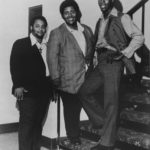
Rance Allen

The Mad Lads
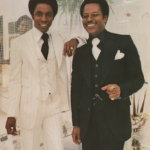
Carl Hampton and Homer Banks

Eddie Floyd and Al Bell

William Bell and Booker T. Jones
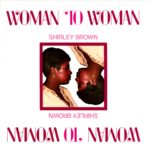
Eddie Marion, James Banks, and Henderson Thigpen

We Three (Bettye Crutcher, Raymond Jackson & Homer Banks)

Eddie Floyd and Steve Cropper
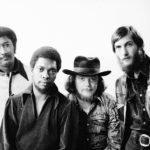
Booker T & the M.G.’s

Steve Cropper and Otis Redding
